Abe offers no apology over wartime past in US Congress speech
Updated: 2015-04-30 08:51
(Xinhua)
|
||||||||
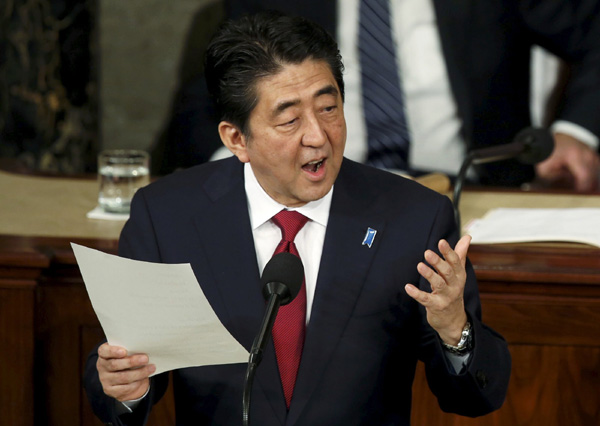 |
|
Japanese Prime Minister Shinzo Abe holds his text as he addresses a joint meeting of the US Congress on Capitol Hill in Washington, April 29, 2015. [Photo/Agencies] |
WASHINGTON - Japanese Prime Minister Shinzo Abe, in the face of a growing chorus of calls for an outright apology for his country's wartime atrocities, told US lawmakers on Wednesday only that he would "uphold" related statements made by his predecessors.
With hundreds of protesters outside the Capitol Hill, as he had seen everywhere since he set foot on US soil on Sunday, the Japanese leader refused to issue a full apology in his speech to a joint session of US Congress, the first by a Japanese premier.
He claimed that Japan started out its path after World War II "bearing in mind feelings of deep remorse over the war."
"Our actions brought suffering to the peoples in Asian countries, we must not avert our eyes from that," he said, adding "I will uphold the views expressed by the previous prime ministers in this regard."
Abe's intransigency over wartime past and his push for Japan to play a greater military role overseas, coupled with unyielding territorial disputes, have put Tokyo on a collision course with China and the Republic of Korea, two neighbors traumatized by Japan's brutal aggression and atrocities, and heightened tensions in the region.
Congressman Steve Israel, who joined the protesters prior to Abe's speech, called for the premier to address Japan's wartime history in his speech so as to "close and heal" wounds.
"If he ignores past atrocities, it will lead to very troubling future," he told reporters. "There are wounds that need to be closed and healed."
"The future can be shaped but history can never be forgotten," he added. "We want him to acknowledge, accept and apologize."
Abe suggested this month that he would not repeat apologies made by his predecessors when he makes a statement in August to mark the 70th anniversary of WWII's end.
Terms such as "heartfelt apology" and "colonial rule and aggression" were included in the statements issued by then Prime Minister Tomiichi Murayama in 1995 and Prime Minister Junichiro Koizumi in 2005 to mark the war's 50th and 60th anniversaries.
- Tourists swarm Mount Taishan even before holiday
- Hospitals checked for possible bribes, kickbacks, misconduct
- 2,000 Chinese tourists return from Nepal
- Watchdog says Sinopec chief faces investigation
- Red Cross Society of China delivers relief supplies to Nepal
- 4,000 Chinese stranded in quake-hit Nepal
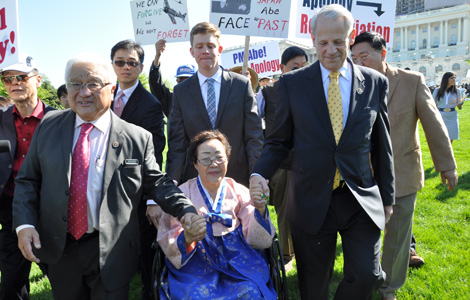
 'Comfort women' survivor attends protest of Jpapan PM
'Comfort women' survivor attends protest of Jpapan PM
 Ten photos you don't wanna miss – April 29
Ten photos you don't wanna miss – April 29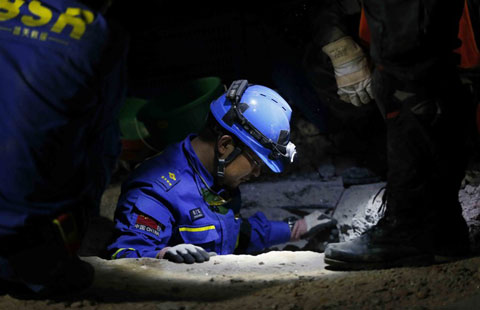
 China's rescue team searches for survivors in Nepal
China's rescue team searches for survivors in Nepal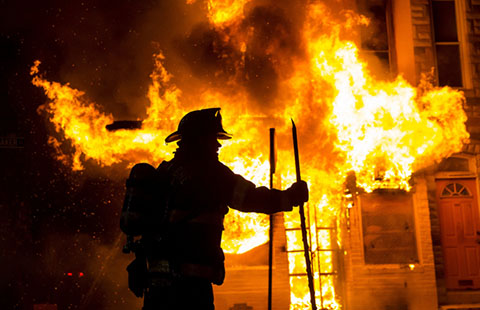
 Police descend on Baltimore to enforce curfew after riots
Police descend on Baltimore to enforce curfew after riots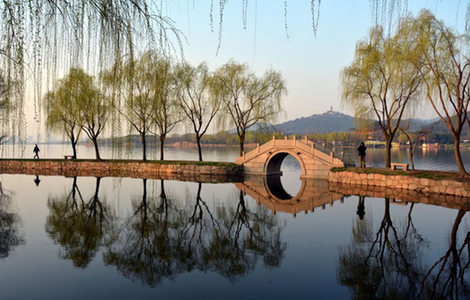
 Top 10 Chinese cities with innovative flair
Top 10 Chinese cities with innovative flair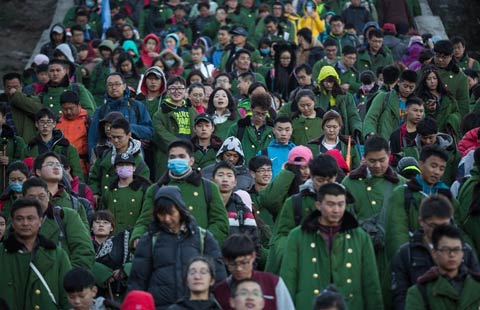
 Tourists swarm Mount Taishan even before holiday
Tourists swarm Mount Taishan even before holiday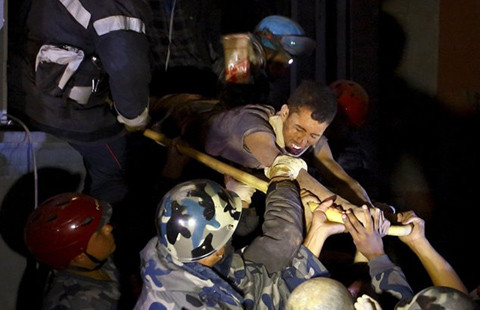
 Man pulled alive from rubble 82 hours after quake
Man pulled alive from rubble 82 hours after quake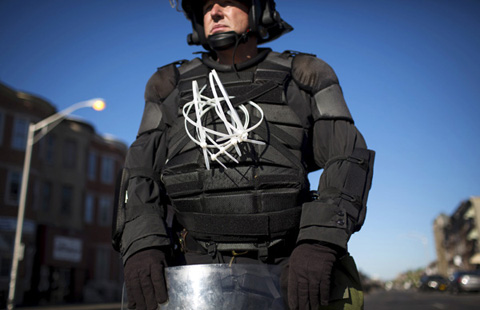
 Baltimore erupts in riots after funeral of man who died in police custody
Baltimore erupts in riots after funeral of man who died in police custody
Most Viewed
Editor's Picks

|

|

|

|

|

|
Today's Top News
US rapped for stance on Japan
Obama, Abe talk much about China
Japan PM protested at US Capitol, San Francisco
Chinese students caught in riot scene
China hits out as Abe visits the US
Riot-hit Baltimore, an American city divided by income and opportunity
Record shattered as Furious 7 sets hot pace
'Rent-a-Foreigner' business by China's real estate developers
US Weekly

|

|







